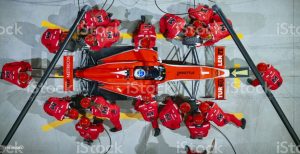A divided organization cannot stand together for too long
Introduction
A divided organization cannot stand together for too long” is a powerful statement that emphasizes the importance of unity and cohesion within an organization. When an organization is divided, it can lead to a lack of trust, communication breakdowns, and a decrease in productivity. In this context, “standing together” refers to the ability of an organization to achieve its goals and fulfil its mission. In order to thrive and succeed, it is essential for all members of an organization to work together towards a common purpose, share a sense of responsibility, and maintain a collaborative spirit. The statement underscores the fact that unity and cooperation are vital components of organizational success, and that division can quickly lead to failure.
Table of Contents
Content
What is Problem?
Division of labour refers to the specialization of tasks within an organization, where each member/employee/worker is assigned specific tasks based on their skills and expertise. This approach to distribution of work is commonly found in industries such as – manufacturing, construction, and white collar establishments where efficiency and productivity are critical. However, when the division of labour is taken to an extreme edges, it can result in situations where individual members of the organisation becomes isolated and disconnected from one another, resulting in a divided organization from within.
In a divided organization, members of the group are more concerned with their individual tasks and responsibilities than with the overall goals of the organization. This can result in a lack of communication and collaboration between different employees , department or among different subsidiaries of the parent company. This leads to conflicts, delays, and reduced productivity. Moreover, when individuals become too specialized, they may lack the skills and knowledge necessary to perform tasks outside of their area of expertise, which can create bottlenecks and further divide the organization
implications, Effects
Conflict is an inevitable part of human being, and any attempts to integrate it into an organization can be quiet challenging. One of the ways in which conflict can be driven, is by divide and rule from the top management. The deliberate creation of divisions within an organization, such as separating departments or teams based on factors such as job function, geography, or hierarchy. By pitting different groups against each other, those in positions of power can maintain control and prevent any unified resistance against their authority.
However, conflicts can also arise at the bottom of an organization, driven by interdepartmental jealousies. In this scenario, different teams or individuals may become competitive with each other, seeking to gain an advantage or status within the organization. This can result in negative behaviors such as withholding information or resources from other teams, actively undermining the efforts of others, or engaging in office politics.
Both of these scenarios can lead to a divided organization, where communication breaks down, trust is eroded, and productivity suffers. To combat these issues, it is important for organizations to foster a culture of collaboration, open communication, and mutual respect.
Solution
This can be achieved through team-building exercises, cross-functional training, and clear communication channels that encourage transparency and feedback. By addressing conflict head-on and promoting a unified culture, organizations can create a more productive and harmonious working environment

About the Author
 Vivek Sood: Sydney based managing director of Global Supply Chain Group, a strategy consultancy specializing in supply chains. More information on Vivek is available on www.linkedin.com/in/vivek and more information on Global Supply Chain Group is available www.globalscgroup.com
Vivek Sood: Sydney based managing director of Global Supply Chain Group, a strategy consultancy specializing in supply chains. More information on Vivek is available on www.linkedin.com/in/vivek and more information on Global Supply Chain Group is available www.globalscgroup.com
Vivek is the Managing Director of Global Supply Chain Group, a boutique strategy consulting firm specialising in Supply Chain Strategies, and headquartered in Sydney, Australia . He has over 24 years of experience in strategic transformations and operational excellence within global supply chains. Prior to co-founding Global Supply Chain Group in January 2000, Vivek was a management consultant with top-tier strategy consulting firm Booz Allen & Hamilton.
Vivek provides strategic operations and supply chain advice to boards and senior management of global corporations, private equity groups and other stakeholders in a range of industries including FMCG, food, shipping, logistics, manufacturing, chemicals, mining, agribusiness, construction materials, explosives, airlines and electricity utilities.
Vivek has served world-wide corporations in nearly 500 small and large projects on all continents with a variety of clients in many different industries. Most of projects have involved diagnostic, conceptualisation and transformation of supply chains – releasing significant amount of value for the business. His project work in supply chain management has added cumulative value in excess of $500M incorporating projects in major supply chain infrastructure investment decisions, profitable growth driven by global supply chain realignment, supply chain systems, negotiations and all other aspects of global supply chains.
Vivek has written a number of path breaking articles and commentaries that are published in several respected journals and magazines. Vivek has spoken at several supply chain conference, forums and workshops in various parts of the world. He has also conducted several strategic workshops on various aspects of supply chain management. He received his MBA with Distinction from the Australian Graduate School of Management in 1996 and prior to these studies spent 11 years in the Merchant Navy, rising from a Cadet to Master Mariner.
More information on Vivek is available on www.linkedin.com/in/vivek and more information on Global Supply Chain Group is available on www.globalscgroup.com
Related Posts
Click below to see related posts.

The Impact of Plummeting Shipping Container Prices Across Industries
Explore the far-reaching consequences of plummeting shipping container prices on diverse industries, revealing the intricate connections shaping global trade, supply chains, and economic landscapes.

Race Day Logistics: Intricacies of Pit Stop
Explore the race day’s heartbeat: the art of pit stops. Uncover the intricate logistics orchestrating split-second tire changes, refuels, and strategy adjustments that define Formula 1’s high-speed drama.

Mastering Travel Logistics in Formula 1 Racing
Discover the art of flawless travel logistics in the high-speed world of Formula 1. Uncover how precision planning and real-time coordination keep teams on track across the global circuit.
